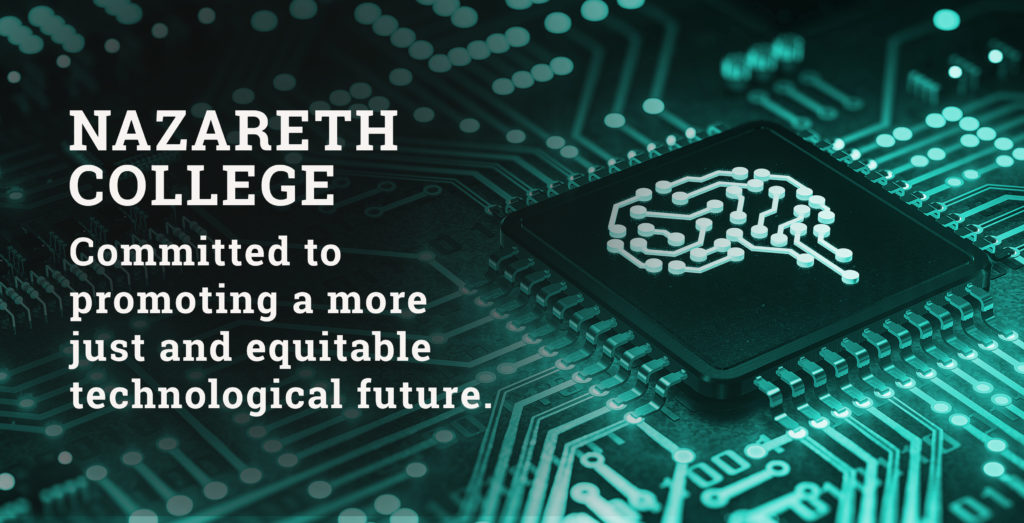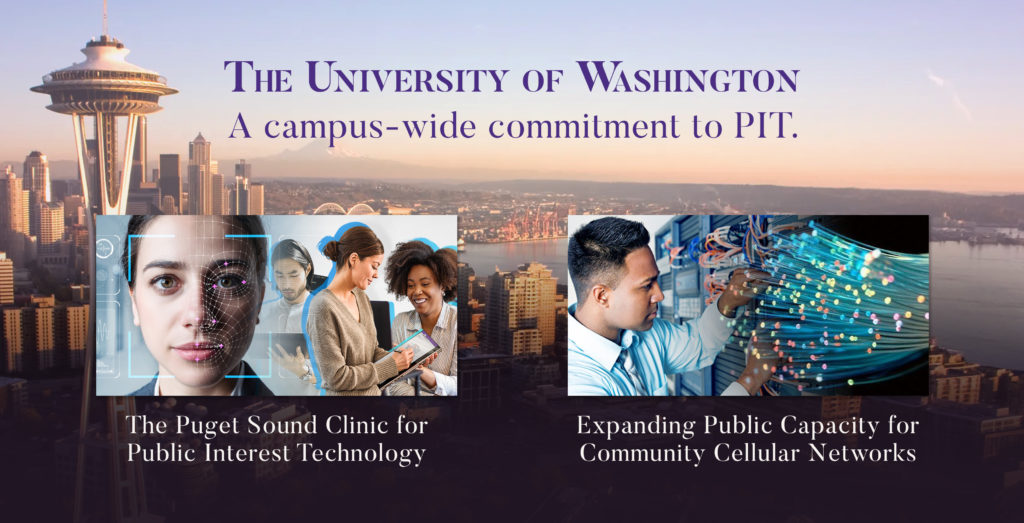
For the past three years, members of the Public Interest Technology University Network (PIT-UN) have offered career pathway models for practitioners-in-training and have supported faculty in their efforts to recognize PIT as an emerging discipline.
“Since its inception, PIT-UN was designed to ensure that those most proximate to problems are directly present in the crafting of solutions,” said Andreen Soley, director of New America’s Public Interest Technology program. “Our members and partners understand that requires us to place a specific and sustained focus on equity, inclusion, and justice – because we cannot design with the community if the community itself does not have access to the developmental pipeline and the resources needed to succeed.”
As educational institutions charged with shaping future leaders in technology, PIT-UN is answering the call to protect and secure its most vital assets: the communities and the institutions that bind the Network together as a society.
“Public interest technology provides a framework to center diversity and inclusion in our efforts to educate the next generation of civic-minded technologists, as well as technologically fluent humanists and social scientists, as we generate solutions for a more equitable future,” said Sheryl Ehrman, Don Beall Dean of the College of Engineering at San Jose State University.
“For example, our first PIT-UN Network Challenge project, California Digital Equity Atlas, partners SJSU faculty with community stakeholders and policy makers to boost digital equity across the state of California, and to develop guidelines for building a publicly accessible dashboard to inform, educate and initiate positive change.”
To date, the presidents and provosts of 43 member institutions reaffirmed their commitment to building the field of public interest technology, growing the Network, and continuing efforts to align technology with the highest social good.
Following are just some of the institutional commitments and field-building activities happening across PIT-UN:
Boston University
Since becoming a founding member of PIT-UN in 2019, Boston University has strived to make public interest technology (PIT) central to our computing and data science initiative.
PIT-UN Projects
- Established a multidisciplinary Data Science 4 Good (DS4G) Steering Committee to help guide our PIT priorities.
- Launched the Impact Hub on Equity (formerly known as the Equity Data Science Lab) in 2020, with funding from the PIT-UN Network Challenge, to advance data science projects and partnerships related to equity, including seeding creation of the Justice Media co-Lab which partners students with media outlets to advance justice and transparency via data-driven reporting.
- Devised plans to launch the Impact Hub on Civic Tech to focus on projects at the intersection of technology, policy, and society.
- Led, with PIT-UN support, the first systematic effort to understand the state of the PIT field and provide a baseline understanding of PIT activities and programs for each of PIT-UN’s members. This project was designed to help members think systematically about the means to advance PIT research and education and to understand the available levers (and barriers) to growth.
Fellowship Programs
- BU has created several engagement mechanisms, including the Civic Tech Fellows Program for faculty, the Impact Fellowship for postdocs, and the Experts in Residence Program for community partners in this work.
Pedagogy and Student Programs
- The new Ph.D. program in Computing and Data Sciences, undergraduate degree, and forthcoming minor in data science center ethics, social impact, and experiential learning — all core tenets of PIT.
- In spring 2022, BU initiated searches for tenure-track faculty at the intersection of law, technology, and society.
- BU has developed and launched several new PIT-focused courses, including a student-led seminar on diversity, equity, and inclusion (DEI) in tech that will train a cohort of student leaders to facilitate conversations and content about how DEI and justice show up across the technology sector from academia to industry to the research and products they create.
Nazareth College
Nazareth College is committed to promoting a more just and equitable technological future through the establishment of the Institute for Technology, Artificial Intelligence, and Society. At the heart of ITAS are innovative, interdisciplinary academic programs coupled with direct connections to the public and private sectors through experiential learning, internships, research opportunities, and senior capstone projects.
ITAS will serve as a leader in educating, debating, and advancing solutions for the ethical design, development, and deployment of technologies in society and at work. Central to our vision is a commitment to diversity, equity, inclusion, and social justice as they intersect with the use of advanced technologies, with an emphasis on algorithms, machine learning, and artificial intelligence.

Additionally, three complementary academic programs have been developed: a B.S. in Ethical Data Science, a B.S. in Business, Artificial Intelligence and Innovation, and a B.A. in Technology, Artificial Intelligence, and Society. Over the next three years, the college will collaborate with private, nonprofit, and governmental partners to build understanding and capacity for the use of technology to advance the public interest.
The University of Washington
The University of Washington has a campus wide commitment to public interest technology, anchored in our Information School, Paul G. Allen School of Computer Science and Engineering, School of Law, and School of Public Policy and Governance. In 2021, the president and provost launched a university wide task force on technology and society to further establish UW as a leader in the field.
Additionally, funding from the Network Challenge is supporting two important cross-disciplinary collaborations:

- The Puget Sound Clinic for Public Interest Technology serves community organizations and local governments in the Puget Sound region. The clinic conducts policy analysis, does prototyping, and even builds alternative technologies alongside groups that typically lack the resources to advocate for their interests in the face of technologies that conduct surveillance, gather biometric data, or make decisions on behalf of smart cities.
- Expanding Public Capacity for Community Cellular Networks involves deploying a community-owned cellular network to bring connectivity to marginalized communities in Seattle and Tacoma. This effort is a partnership between Computer Science, the Information School, UW Tacoma Urban Studies, and local nonprofit organizations including Tacoma Community Network, Tacoma Public Libraries, and the city of Seattle.
